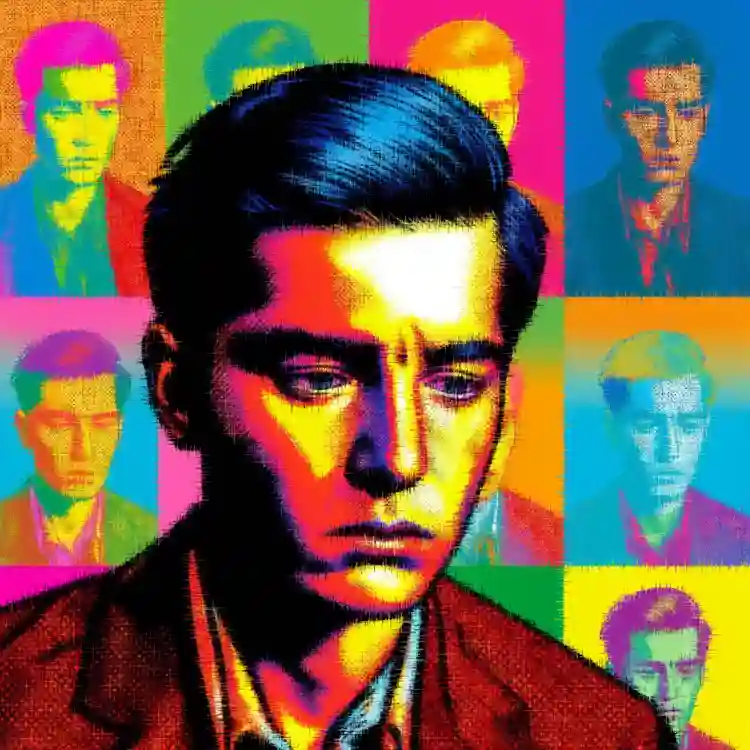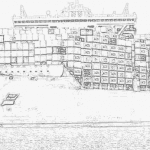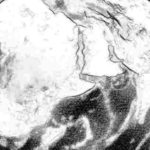
What if someone constantly reminded you that your life was always ‘granted’ rather than a result of your hard work? What if it always rang like an alarm in your head that your existence was never independent, but the ‘gift’ of people whose faces frown on seeing you, who want you to mop their floors for them, but never touch them, whose water turns impure once we take a sip from it, whose self-elevation is what they assert as the reason we’re ‘allowed’ to live? Even if you enroll in the best varsity of the country, and make it to the toppers’ list, people would glare at you and say, ‘You never earned it. YOU can never earn it. They just reserved it for you. Everyone knows what you’re capable of’. However, I believed I was chosen to dream.
Dreaming is peculiar in India’s remotest areas and fostering them amidst people whose horizons are narrow made life seem convoluted. I cannot blame them though. The life which developed them embedded a ‘culture without development’. I grew up questioning traditions, where I was taught to ‘not think but follow’ because honestly, they weren’t traditions to me, but practices that would force ourselves to undermine our worth, even when we didn’t want to, because you needed it to ‘survive’ in the system. It was perplexing that the question of survival would overlap that of self-derogation in my community.
Like when my father is afraid to sit in front of his landlord and would do so on the floor, or when we draw water from wells in the night after everyone’s asleep, for if we do in the presence of those who’re up in the ladder, we are ‘punished’; I had to lose my sister to death for loving the landlord’s son though people said ‘she invited death’. No, death won over my sister and befriended those who wouldn’t let us see ourselves as we are. Love can’t be manufactured on an invisible pyramid devoid of meaning that doesn’t add anything to life but misery. The inadvertence that these people show to ensure they never touch us cannot be found, when we are looted of our abilities and resources for their sustenance of life. We cannot discover ourselves, because their lives depend on that lie. I simply couldn’t construe, why are they greater than us, for my rationalism couldn’t detect these minuscule impurities beyond scientific explanations. According to them, we’re never ‘meant to be educated’ because we do not have ‘innate intelligence’.
In a nutshell, the life of every person who believes this hierarchy adds value to their existence is living a huge lie. Each life is a façade, camouflaged by the veil of superiority.
My people found it easier to follow than to think differently. I was often reprimanded and alienated for not being ‘same’ like others. It’s a vicious cycle passed on from our ancestors. Sometimes, people are forced to prioritise their life over their gut feelings. But my family chose both. They’ve always known that amongst all of us, perhaps I was the only one who wanted to confront myself, the truth. Maybe they were exhausted over being the ‘behind the scenes’ of maintaining the sophistication of somebody’s mansion, never getting recognised for it and wanted me to free myself.
As I sat at the Internet cafe, and skimmed through the mail from XIT Rajasthan regarding admission, my heart skipped a beat. Dad who saw me awestruck, pestered to say something. As I revealed the surprise, his eyes gleamed with joy. I reminisce him sprinting around our village, jubilantly distributing laddoos. We were finally happy that life was taking a direction, completely new and different. But we were afraid of a world that dwells over wealth; of people who could afford three luxurious meals a day and withdraw the amount they ‘needed’ from ATMs at their convenience. Their criterion decided whether we are good people. People who wear shabby clothes worth 100 rupees are uncultured and impure. We are neither to be touched nor trusted. While they wore the branded shoes, we wore their old, worn-out ones with holes. We were the humanoid recycle bins. It seemed the more you excelled, less the human inside you grew.
To me, XIT was not just a dream. It was a vision that transformed me into the individual I wanted to be. Imagining me in their uniform gave me sleepless nights, but powerful manifestations. XIT was the ‘perfect life’ I sought. Once I got in however, the undesired question of belonging started haunting me everywhere. I initially thought it was a joke, but honestly it never felt amusing. The question ‘Where are you from?’ constantly bothered me. Whenever I answered it, people burst into laughter, mocking my home and my people. Wherever they could, they’d drag my family into the conversation.
‘Oh, you’d know nothing because your father’s a sweeper, right?’
‘The best task you can do is clean the kitchen and toilets!’
I tried laughing with them, but it felt merely senseless to do so, because they were blatantly piercing my heart which I tried to deny. I didn’t want to confront my tears.
But it’s XIT; The perplexing question of survival I pondered all over my childhood took over the situation once again. How to survive? By betraying my conscience, like it has always been.
I couldn’t look back because my family came into the picture. What would I say to Dad? I couldn’t retreat without his ‘Swift’. It was more than his favourite vehicle. It was his pride in his son and I didn’t want to destroy it. No one to divide grief and make it lighter, I masked it, relying on hope. But the ‘labelling’ rather expanded itself, through people.
You see, when people like me progress, it feeds on the fear of those whose status depends on us not growing. Whether we grow or not, what we are is the ‘generosity’ of the system.
Why do my research papers have red marks? I don’t want to acknowledge my father being a cleaner as the reason, because that is really what it’s all about. Reasons that are unreasonable, deciding the fate of many.
People are blind today to the good, to the humane. The world is in the roller-coaster ride for the manifestation of power. It seems to be a perpetual process and to stall it, we need to confront and develop our humanity. Unfortunately, I can’t see it in anybody around me. This is my first and last entry. I deem that I’ll live a better life in some other parallel universe where my character is my identity.
My sister didn’t have an opportunity to leave such a note to the world. They said she did not deserve to say ‘goodbye’. I never lost her to death alone, but to the hands of dominance and cruelty. My life expires today from this world. I am not one, I am many. I should listen but shouldn’t speak. My voice is chained by the ‘imperial democrats’. Whether my family can see my lifeless body or not, whether I’m entitled to a dignified funeral; the answers to these questions are dependent on the phone call of some anonymous politically privileged person.
But have they forgotten: Take away my older generations from the streets, the
elite households, the public toilets for a day, and the beauty of our motherland
will be no more.
Once I’m gone, I’m nothing to XIT. I’m expunged even before my loved ones can address my departure. But perhaps, this life veneered with lies has to end. The next day begins as if everything were perfect as before.
‘Wasn’t my existence in this world a mistake?’
Asiya Rahman is an earnest occasional writer, pursuing BA LL. B at Government Law College, Thiruvananthapuram, Kerala whose essence of life lies in experimenting with words, willing to take a chance with the purpose of prompting minds to give a second thought and question notions from a different angle.








Leave a Reply